Celebrating favorite campus kittens on National Cat Day
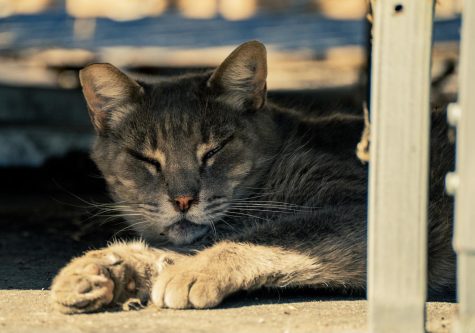
Last year, while the student population of El Camino College was off-campus, another population was growing on the school grounds. An overlooked but valued group of felines continue to roam the campus.
Oct. 29 is National Cat Day and so many cats are without homes. Some of El Camino College’s (ECC) cats have the campus as their home they still need food, donated by the community. However many El Camino College (ECC) cats could become part of the families of the ECC community through adoption.
From a five-week-old orphan to a playful two-year-old, Zilla, who used to be one of the campus kittens in 2019, became a well-loved part of her adopted family.
English professor Christopher Glover who adopted her said that Zilla is short for Godzilla, because of her personality.
“So she’s very bossy and a lot of personality, and kind of monstrous,” Glover said.
Glover said that Zilla turned him into a cat person. He recommends that other people adopt the ECC cats.
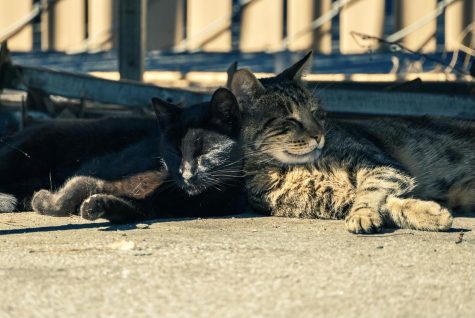
“There are plenty of cats at El Camino that need a lot of love. And if they have the opportunity to take one home they should,” Glover said.
Carl Turano has been feeding and taking care of the cats at ECC for over 15 years. For those who are unable to adopt an ECC cat, there are other ways to help the felines of ECC, Turano recommends bringing food donations.
“I can take care of a whole bunch of kitties if I have the food,” Turano said.
Turano said that both dry cat food such as kibble and wet food such as canned cat food is acceptable.

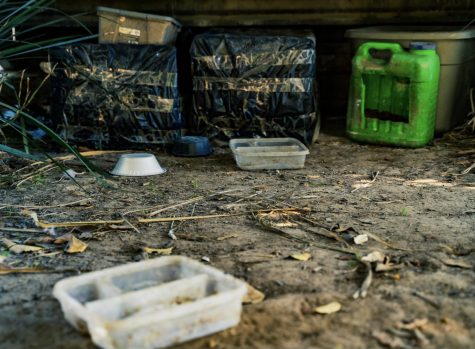
Cats have proven useful in rodent control on campus. This was discovered when there was an effort to remove the ECC cats in 1988.
An article by The Union published in 2020 made reference to an incident covered in The Warwhoop, that after the 1988 removal the campus experienced a large infestation of rats.
According to the article, “Two years later, the campus was overrun with a rodent infestation in which rats could be found in buildings, between walls, on telephone wires and their urine and feces were found in desk and cabinet drawers, Turano said.”
In 2021, however, the pandemic caused the campus to have a population explosion of cats.
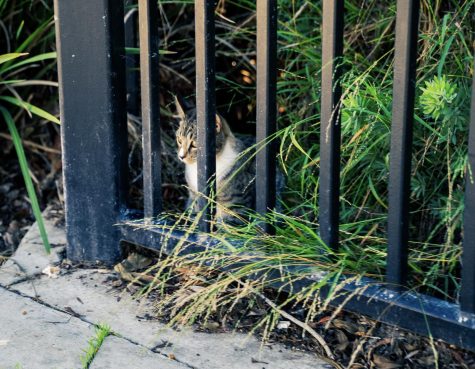
“This year here has been such a terrible year with the pandemic we were not able to do anything. We couldn’t get into vets, we couldn’t get them fixed so, therefore we are blowing up not just El Camino but, you know, California’s blowing up with kitties and kitty problems,” Turano said.
Many of the cats that are brought to ECC are reportedly friendly and many of them, when caught, are put up for adoption.
“They bring me lots of kitties that are friendly I can pet and I make friends with lots of kitties, and then I do my best to find new homes for them,” Turano said.
As these kitten populations on ECC grow, the main threat to the campus roaming cats are coyotes.
“The coyotes come and they, they kill our cats,” Turano said.
These cats have become a big part of the ECC community on campus and in the community members’ homes.
For cats that have been adopted, there also is a risk to their safety with Halloween approaching. Public Information Director for Los Angeles Animal Services Agnes Sibal said that it’s important to keep your pets, especially cats, indoors on Halloween.
“What we do ask is you know if you have a cat is you know to keep them indoors because, unfortunately there are sometimes, you know, pranksters around who, you know want to, you know play a joke,” Sibal said.
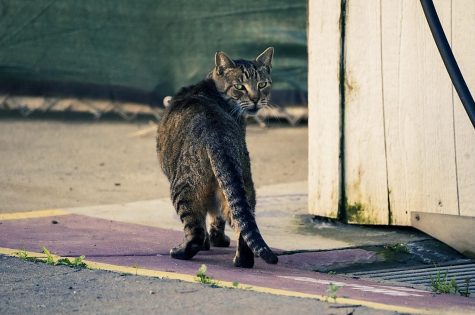
For those who want to adopt an ECC cat or donate to the cats on campus, they should contact Carl Turano.
“They’re really beautiful creatures, we have some really nice kitties around here,” Turano said.







